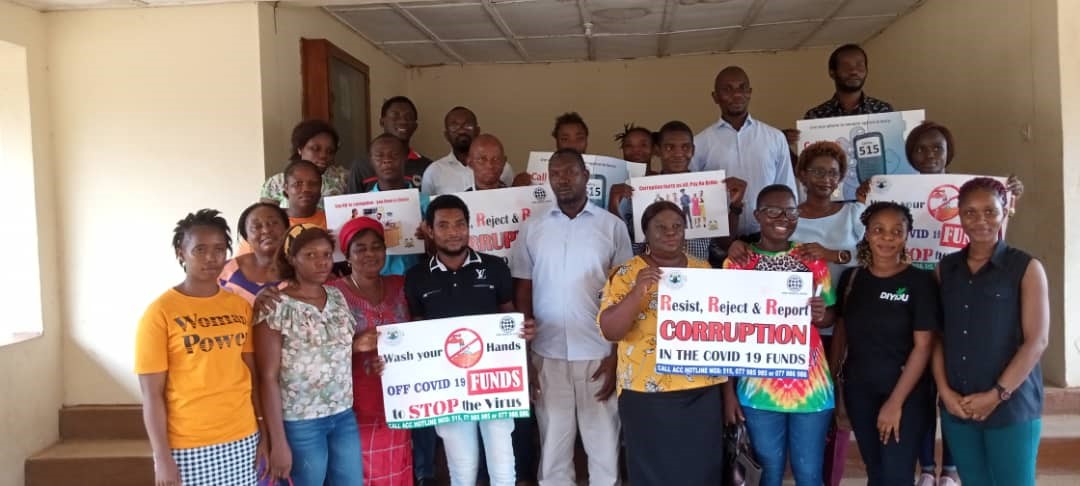By ACC Media Team
FREETOWN, May 18 (232news.com) – “Humanitarian outfits should treat the fight against corruption with utmost seriousness because its prevalence hurts poor and vulnerable groups and also wanes donor confidence.” Assistant Director, Ministry of Social Welfare in Bo, Michael James, made this statement in a sensitization meeting the ACC Southern Region office had with officials of the Ministry to promote the tenets of integrity, transparency, accountability and professional ethics among public sector workers. The meeting was held at the Conference Hall, Ministry of Social Welfare, Reservation Road, Bo City on Thursday 12th May 2022.
ACC’s Regional Manager, South, Momodu Sittar, acknowledged the genuine efforts of some humanitarian organizations who, in the midst of turbulence and pandemic, have supported vulnerable groups to maximize their welfare. He said that these vulnerable groups whose interest should be protected often become the victims of corruption because the operation of the duty bearers is shrouded in secrecy.
Mr. Sittar admitted that despite the unique challenges public sector institutions are confronted with they should not be distracted to execute their respective mandates. He described the work of the Ministry as critical in the country’s aspiration to actualize a cohesive society which cannot be attained when less attention is paid to vulnerable groups.
The Regional Manager explained some of the offences in the Anti-Corruption Act 2008 as amended in 2019 and warned them to steer off from such practices. “The penalty for these offences is a fine not less than Fifty Million Leones or imprisonment for a term not less than five years or suffer both such fine and imprisonment,” he warned.
In his statement ACC’s Senior Public Education Officer, Abdulai Saccoh, drew the attention of his audience to the Commission’s stance to dispel any attempt to enforce suffering on vulnerable groups because they deserve to be treated with dignity and respect. He admonished his audience not to allow unscrupulous groups to use vulnerable groups as a means to enrich themselves.
The Senior Public Education Officer recognized that corruption seriously undermines the welfare of women and children who mostly rely on such services provided by the State. “Corruption weakens donor confidence, increases inequality and poverty, diverts public investments, distorts data meant to guide public spending, discourages investment and growth and undermines efficiency,” he said. He called on the Ministry to remain resolved in putting national interest above all else so the country can achieve greatness.
ACC’s Public Education Officer, Yangie Deborah Sesay, said the engagement was consistent with the Commission’s strategic approach to communicate anti-corruption measures to Government Ministries, Departments and Agencies (MDAs) in a bid to address systems weaknesses. The Public Education Officer said that one of the major factors responsible for ineffective implementation of programs and projects is lack of integrity and transparency. Miss Sesay admonished her audience that the situation would not change if citizens allow few greedy individuals to continue to exploit them for their selfish desires.

